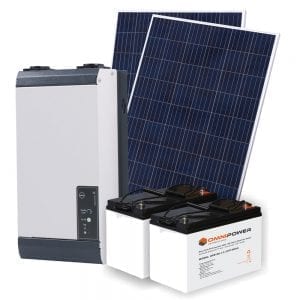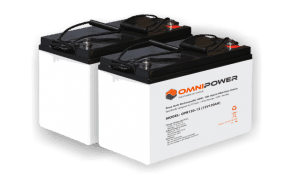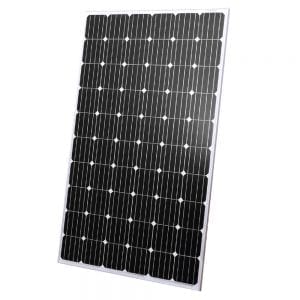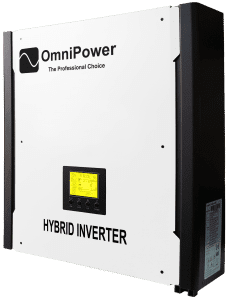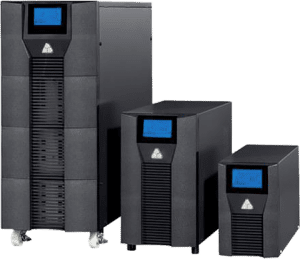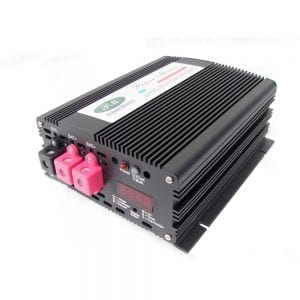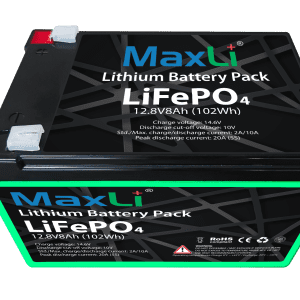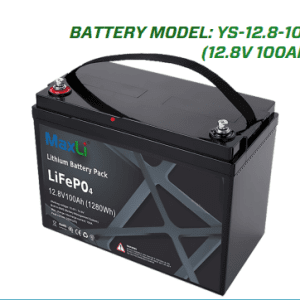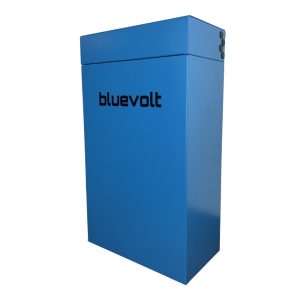Lithium Ion Batteries
Lithium Ion Batteries
In the ever-growing demand for reliable energy storage solutions, lithium-ion batteries for solar have swiftly emerged as a top-tier choice. As a lithium-ion battery supplier focused on quality, durability, and efficiency, our premium range of lithium-ion batteries ensures steadfast energy storage to keep the lights on no matter what the grid is doing.
Lithium Ion Batteries
Showing all 14 results
-
All Products, Batteries, LATEST ARRIVALS, Lithium Ion Batteries, Monthly Deals
Battery Lithium LiFePo4 5,120kWh 51V 100AH Rack Mount MaxLi
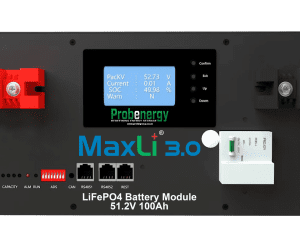 All Products, Batteries, LATEST ARRIVALS, Lithium Ion Batteries, Monthly Deals
All Products, Batteries, LATEST ARRIVALS, Lithium Ion Batteries, Monthly DealsBattery Lithium LiFePo4 5,120kWh 51V 100AH Rack Mount MaxLi
0 out of 5(0)Maxli Rack Mount – Lithium Iron Phosphate (LiFePO4) Battery
SKU: LI-BAT-5120WH51VRM-MR20,815.00R24,475.61ex. VAT -
All Products, LATEST ARRIVALS, Lithium Ion Batteries, Monthly Deals
Battery Lithium LiFePo4 5,120kWh 51V 100AH Stackable Mounting MaxLi
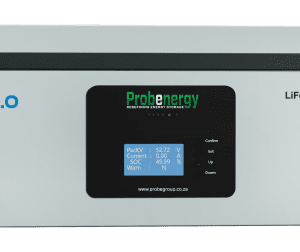 All Products, LATEST ARRIVALS, Lithium Ion Batteries, Monthly Deals
All Products, LATEST ARRIVALS, Lithium Ion Batteries, Monthly DealsBattery Lithium LiFePo4 5,120kWh 51V 100AH Stackable Mounting MaxLi
0 out of 5(0)SKU: LI-BAT-5120WH51VSM-MR21,185.00R25,702.57ex. VAT -
All Products, LATEST ARRIVALS, Lithium Ion Batteries, Monthly Deals
Battery Lithium LiFePo4 5,120kWh 51V 100AH Wall Mount MaxLi
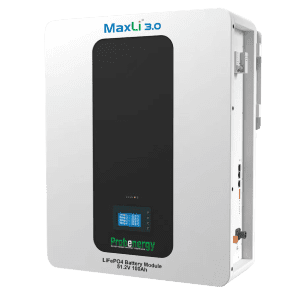 All Products, LATEST ARRIVALS, Lithium Ion Batteries, Monthly Deals
All Products, LATEST ARRIVALS, Lithium Ion Batteries, Monthly DealsBattery Lithium LiFePo4 5,120kWh 51V 100AH Wall Mount MaxLi
0 out of 5(0)SKU: LI-BAT-5120WH51VWM-MR20,260.00R25,205.77ex. VAT -
All Products, Batteries, LATEST ARRIVALS, Lithium Ion Batteries, Monthly Deals
Battery Lithium LiFePo4 3,584kWh 51V 70AH Wall Mount MaxLi
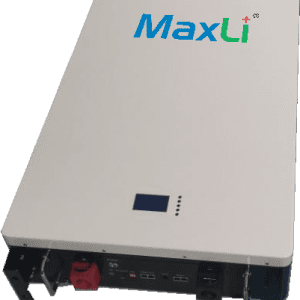 All Products, Batteries, LATEST ARRIVALS, Lithium Ion Batteries, Monthly Deals
All Products, Batteries, LATEST ARRIVALS, Lithium Ion Batteries, Monthly DealsBattery Lithium LiFePo4 3,584kWh 51V 70AH Wall Mount MaxLi
0 out of 5(0)Battery Solar Deep Cycle Li-Ion Maxli 48V 70Ah 3.5kWh Wall Mount
SKU: LI-BAT-3584WH51VWM-MR17,575.00R19,895.45ex. VAT -
All Products, Batteries, LATEST ARRIVALS, Lithium Ion Batteries, Monthly Deals
Lithium Battery 2.5kWh 48v Wall Mount MaxLi
 All Products, Batteries, LATEST ARRIVALS, Lithium Ion Batteries, Monthly Deals
All Products, Batteries, LATEST ARRIVALS, Lithium Ion Batteries, Monthly DealsLithium Battery 2.5kWh 48v Wall Mount MaxLi
0 out of 5(0)Maxli Wall Mount – Lithium Iron Phosphate (LiFePO4) Battery
SKU: LI-BAT-2560WH51VWM-MR12,950.00R14,210.99ex. VAT -
All Products, Batteries, LATEST ARRIVALS, Lithium Ion Batteries
Battery Lithium LiFePO4 2560Wh 25.6V 100Ah MaxLi YS-25.6-100
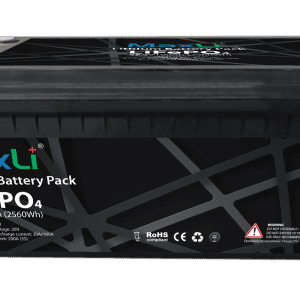 All Products, Batteries, LATEST ARRIVALS, Lithium Ion Batteries
All Products, Batteries, LATEST ARRIVALS, Lithium Ion BatteriesBattery Lithium LiFePO4 2560Wh 25.6V 100Ah MaxLi YS-25.6-100
0 out of 5(0)SKU: LI-BAT-25.6V-100AHR11,400.00 ex. VAT -
All Products, Batteries, Lithium Ion Batteries, Monthly Deals
Battery Bluevolt S12-8-12kWh 8kW BMS
0 out of 5(0)SKU: LI-BAT-11KWH48V5-T-B -1-1-1R56,654.60R73,472.23ex. VAT -
All Products, Batteries, Lithium Ion Batteries, Monthly Deals
Battery Bluevolt S12-5-12kWh 5kW BMS
0 out of 5(0)SKU: LI-BAT-11KWH48V5-T-B -1-1R55,537.78R71,405.71ex. VAT -
All Products, Batteries, Lithium Ion Batteries, Monthly Deals
Battery Bluevolt S11-8-11kWh 8kW BMS
0 out of 5(0)SKU: LI-BAT-11KWH48V5-T-B -1R52,320.91R68,014.54ex. VAT -
All Products, Batteries, Lithium Ion Batteries, Monthly Deals
Battery Bluevolt S11-5-11kWh 5kW BMS
0 out of 5(0)SKU: LI-BAT-11KWH48V5-T-BR52,273.33R67,208.57ex. VAT -
All Products, Batteries, Lithium Ion Batteries
Battery Solar Deep Cycle Lithium Hubble – 2.75kWh – 25V
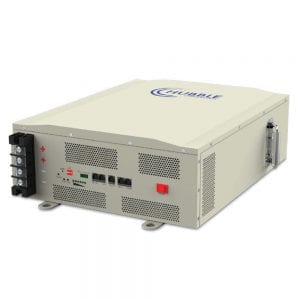 All Products, Batteries, Lithium Ion Batteries
All Products, Batteries, Lithium Ion BatteriesBattery Solar Deep Cycle Lithium Hubble – 2.75kWh – 25V
0 out of 5(0)Battery Solar Deep Cycle Lithium Hubble – 2.75kWh – 25V
SKU: Hubble-AM4R18,564.43 ex. VAT -
All Products, Batteries, Lithium Ion Batteries
Battery Solar Deep Cycle Lithium Hubble – 5.5kWh – 51V
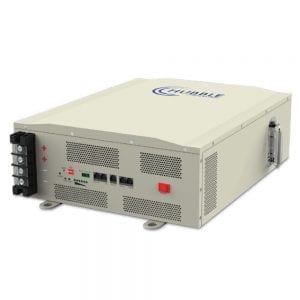 All Products, Batteries, Lithium Ion Batteries
All Products, Batteries, Lithium Ion BatteriesBattery Solar Deep Cycle Lithium Hubble – 5.5kWh – 51V
0 out of 5(0)Battery Solar Deep Cycle Lithium Hubble – 5.5kWh – 51V
SKU: Hubble-AM2R31,176.94 ex. VAT
Advantages of Lithium-ion Batteries For Solar
Integrating 12V lithium-ion batteries and up into your electrical system provides you with a resilient power source during outages. These batteries boast a host of benefits compared to alternative energy storage systems. Some key advantages include:
- 25-50% More Usable Capacity: Lithium-ion batteries deliver significantly more usable capacity compared to other alternatives, ensuring a robust and reliable energy reservoir.
- Constant Voltage During Discharge: Maintaining a constant voltage throughout discharge sets lithium-ion batteries apart, ensuring a stable and consistent power supply over the entire discharge period.
- No Gas Emissions: Unlike some other energy storage options, lithium-ion batteries boast a clean profile with no gas emissions, contributing to an eco-friendly and sustainable energy solution.
- Extended Life Cycle: Lithium-ion batteries offer a substantially longer life cycle, providing enduring reliability and reducing the frequency of replacements.
- Efficient Charging: Achieving full charge in just 1 to 3 hours, lithium-ion batteries streamline the charging process, ensuring a quick and effective replenishment of energy reserves.
If you’re looking for dependable and robust lithium-ion batteries in South Africa, our electricity storage solutions empower you to break free from the limitations of traditional energy systems.
Lithium-ion vs Lead Acid Batteries
When it comes to backup power applications, lithium-ion batteries are preferred over lead-acid counterparts for several reasons:
- Consistent Power Capacity: Lithium-ion batteries provide 100% of their rated power capacity throughout discharge, unlike lead-acid batteries, which experience a decrease in voltage as the charge diminishes. This ensures a more reliable and continuous power supply.
- Extended Life Cycle and Shelf Life: Lithium-ion batteries outshine lead-acid batteries in both life cycle and shelf life, offering a longer-lasting and more sustainable energy storage solution.
- Lightweight Construction: Lithium-ion batteries weigh significantly less, about 50-60% less, compared to lead-acid batteries. This lightweight design enhances portability and installation flexibility.
Choose the superior energy storage solution with Sinetech’s lithium-ion batteries.
How Lithium-ion Batteries Are Made
Lithium-ion batteries are made by putting together electrodes in groups, and these groups are then assembled into cells. To create the electrodes, a mixture of active material, polymer binders, conductive additives, and solvents is made into a slurry. This slurry is spread on a current collector foil, dried to get rid of the solvent, and forms a porous coating on the electrode.
Can Lithium-ion Batteries Explode
Lithium-ion batteries can explode or catch fire because of something called thermal runaway. Thermal runaway happens when the battery gets too hot quickly, causing a chain reaction that releases a lot of energy and could lead to a serious failure.
Are Lithium-ion Batteries Rechargeable
A lithium-ion battery is a rechargeable battery that uses lithium ions to move between its negative (anode) and positive (cathode) electrodes during charging and discharging.
Showing all 14 results

